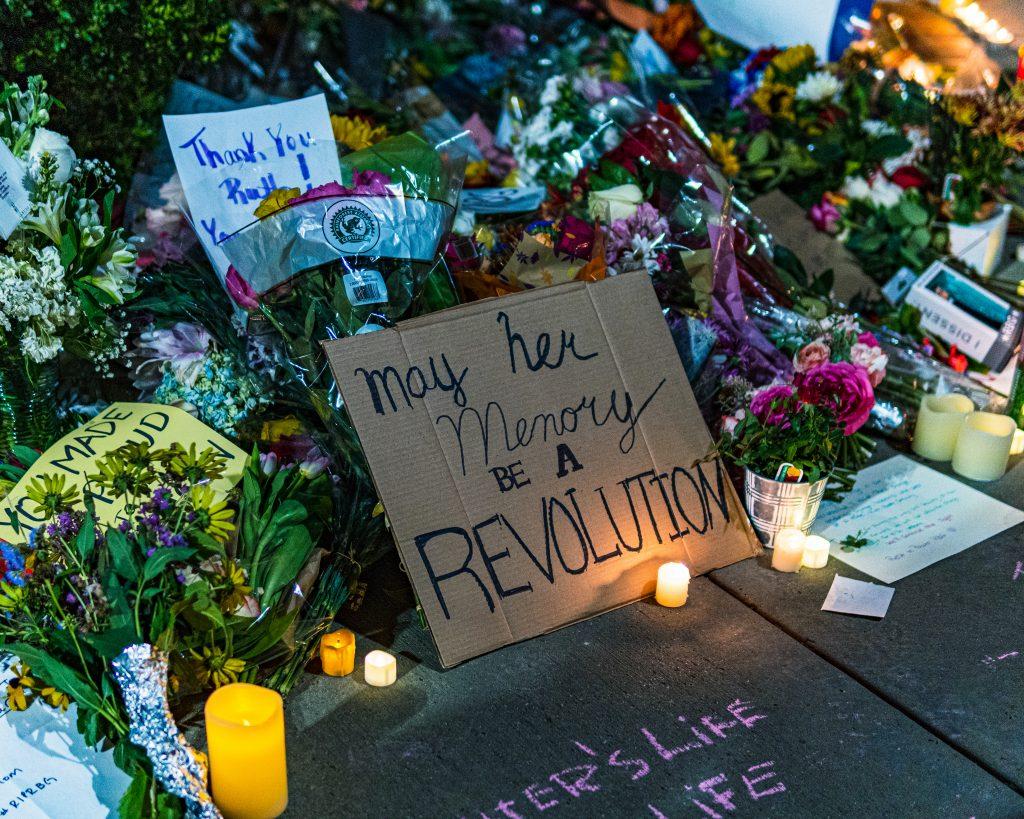On Sept. 18, Justice Ruth Bader Ginsburg died in her home at the age of 87, after serving 27 years as an Associate Justice of the Supreme Court of the United States. She was sworn in on Aug. 10 1993, becoming the second woman to serve, today being one of four. Ginsburg worked famous cases such as Obergefell v. Hodges and United States v. Virginia, leaving her mark as one of the most influential fighters for human rights in the United States.
“Her death is honestly a huge loss,” junior Sophie Gordon said. “She was an amazing, inspiring person. She was such an advocate for equal rights, and the loss of her is a major loss in representation of women in high power positions.”
Before she was a U.S. Supreme Court Justice, Ginsburg was a successful attorney and committed advocate for the fair treatment of women. She attended Harvard Law School and excelled in the male-dominated environment at a time when, according to the United States Census, only about 3.5% of lawyers were women.
“Growing up as a woman in America, you’re always on the lookout for anyone who’s made it, regardless of shared philosophy,” Rep. Alexandria Ocasio-Cortez said in an interview. “That’s how rare achieving such heights as she did is for a woman in our country, especially at the time that she achieved it.”
Ginsburg’s relentless determination and hard work toward the equal rights foLBGTQ+ community, and the mentally ill earned her the title ‘Notorious RBG’. Ginsburg’s strong beliefs, unapologetic attitude, and her criticism of Roe v. Wade made her unpopular with many people on both sides of the political spectrum. Following her death, though, it is clear that while many disagreed with her, many people of the United States respected her and what she was fighting for.
“She led an amazing life,” President Donald Trump said of Ginsburg in an interview. “Whether you agreed or not she was an amazing woman who led an amazing life.”
Ginsburg’s seat on the Supreme Court is now empty, and members of Congress are divided on the topic of her replacement. Some are calling for her immediate replacement, while others suggest that they wait until after the election. If Trump nominates a new justice and the Senate approves, the Republican party will have control of the Supreme Court, and many are worried for the future of cases that secured the rights of women and the LGBTQ+ community.
“I think that if we try to rush it, we could end up choosing the wrong person,” Gordon said. “Her death is a setback in representation and the equal rights movement. It’ll possibly cause a lack of movement towards complete equality unless we have someone who is equal to her beliefs in equality take her place.”
The future of the Supreme Court aside, Ginsburg’s fight against discrimination has left a massive impact that her successors will continue, and she has proved to be an inspiring role model for girls and women all around the world.
“Because of her I’ve learned how to be a strong and confident person,” Gordon said. “She left behind a legacy of equality and power, showing the country that women are strong and deserve equality.”
By: Emily Chambliss, Editor-in-Chief







